Stress describes the body’s response to problems and needs. Stress can be both positive and negative, and there are good ways to deal with it. how to relief from stress Good sleep is essential for managing stress. How to reduce or relief the stress Many people to mange stress swear by exercise to help reduce stress in their daily lives.
What is stress?
Stress is the physical response to a challenge or demand. Everyone is depressed. Depression can be caused by a variety of factors. From small daily worries to major changes such as a divorce or job loss. Stress responses include physical characteristics such as heart rate and blood pressure. how to relief from stress Feelings and self-confidence in the face of stressful situations, and feelings such as fear and anger. We often think about negative things. How to relief from stress but stress can also be caused by changes in quality of life. Such as progress in employment or pregnancy.
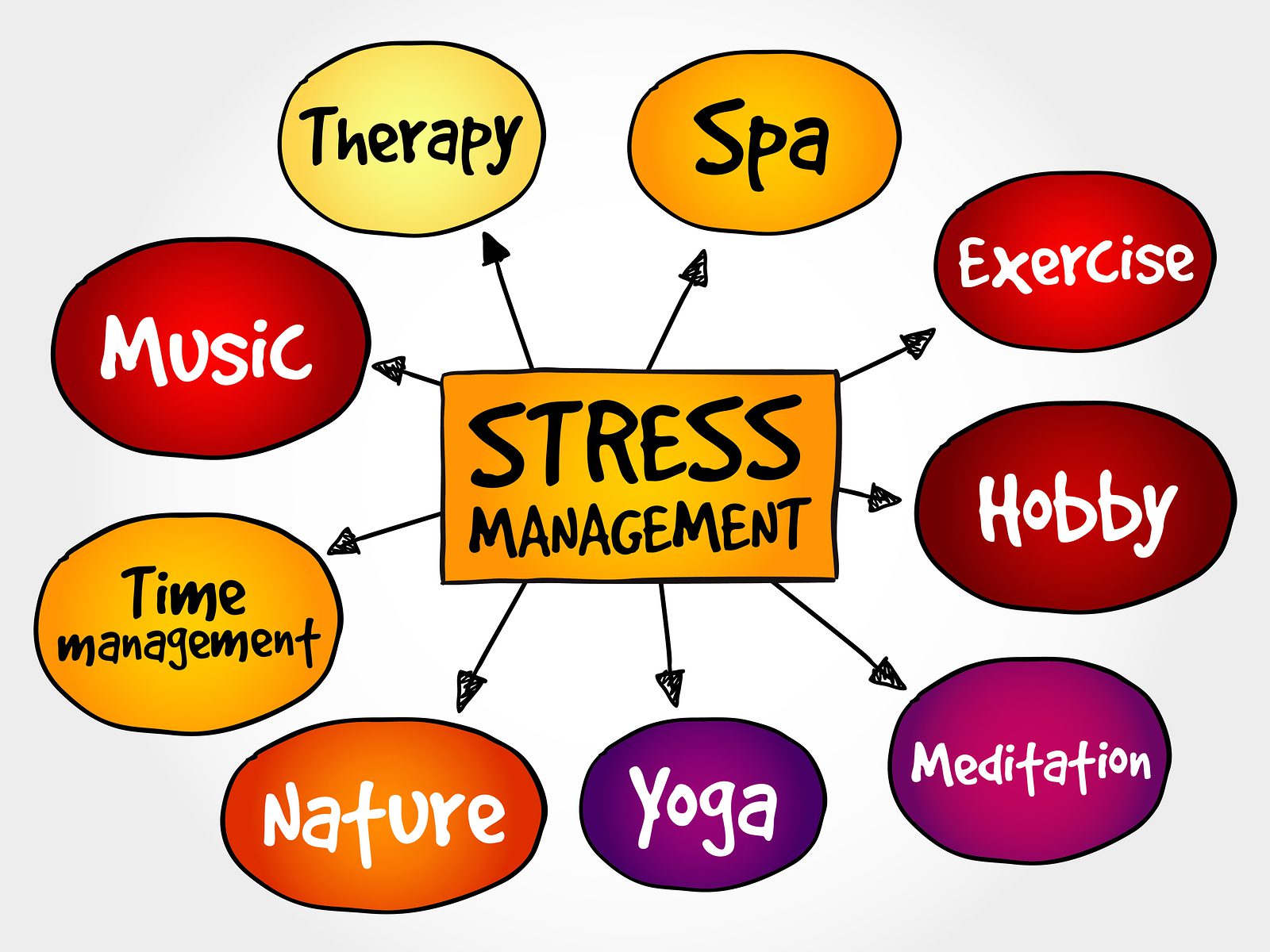
Tips for dealing with stressful situations
It might surprise you to learn that biological stress is a fairly recent discovery. It wasn’t until the late 1950s that endocrinologist Hans Selye first identified and documented stress.
Symptoms of stress existed long before Selye. how to relief from stress But his discoveries led to new research that has helped millions cope with stress. We’ve compiled a list of the top 10 ways to relieve stress.
Listen to music
If you’re feeling overwhelmed by a stressful situation, try taking a break and listening to relaxing music. Playing calm music has a positive effect on the brain and body. Can lower blood pressure, and reduce cortisol, a hormone linked to stress.
We recommend cello master Yo-Yo Ma playing Bach. But if classical really isn’t your thing, try listening to ocean or nature sounds. It may sound cheesy, but they have similar relaxing effects to music.
Talk it out with a friend
When you’re feeling stressed, take a break to call a friend and talk about your problems. Good relationships with friends and loved ones are important to any healthy lifestyle.
They’re especially important when you’re under a lot of stress. A reassuring voice, even for a minute, can put everything in perspective.
Talk yourself through it
Sometimes calling a friend is not an option. If this is the case, talking calmly to yourself can be the next best thing.
Don’t worry about seeming crazy
— just tell yourself why you’re stressed out. What you have to do to complete the task at hand, and most importantly, that everything will be okay.

Eat right
Stress levels and a proper diet are closely related.
When we’re overwhelmed, we often forget to eat well and resort to using sugary. Fatty snack foods as a pick-me-up.
Try to avoid sugary snacks and plan ahead. Fruits and vegetables are always good. And fish with high levels of omega-3 fatty. Acids have been shown to reduce the symptoms of stress. A tuna sandwich really is brain food.
Laugh it off
Laughter releases endorphins that improve mood and decrease levels of the stress-causing hormones cortisol and adrenaline. Laughing tricks your nervous system into making you happy.
Our suggestion: watch some classic Monty Python skits like The Ministry of Silly Walks. Those Brits are so hilarious, you’ll soon be cracking up rather than cracking up.
Drink tea
A large dose of caffeine causes a short-term spike in blood pressure. It may also cause your hypothalamic-pituitary-adrenal axis to go into overdrive.
Instead of coffee or energy drinks, try green tea. It has less than half the caffeine of coffee and contains healthy antioxidants. As well as theanine, an amino acid that has a calming effect on the nervous system.
Be mindful
Most of the tips we’ve suggested provide immediate relief. But there are also many lifestyle changes that can be more effective in the long run. The concept of mindfulness is a large part of meditative. And somatic approaches to mental health and has become popular recently.
From yoga and tai chi to meditation and Pilates. These systems of mindfulness incorporate physical and mental exercises that prevent stress from becoming a problem. Try joining a class.
Exercise (even for a minute)
Exercise doesn’t necessarily mean power lifting at the gym or training for a marathon. A short walk around the office or simply standing. Up to stretch during a break at work can offer immediate relief in a stressful situation.
Getting your blood moving releases endorphins and can improve your mood almost instantaneously.
Sleep better
Everyone knows stress can cause you to lose sleep. Unfortunately, lack of sleep is also a key cause of stress. This vicious cycle causes the brain and body to get out of whack and only gets worse with time.
Make sure to get the doctor-recommended seven to eight hours of sleep. Turn the TV off earlier, dim the lights, and give yourself time to relax before going to bed. It may be the most effective stress buster on our list.

Breathe easy
The advice “take a deep breath” may seem like a cliché, but it holds true when it comes to stress. For centuries, how to mange stress Buddhist monks have been conscious of deliberate breathing during meditation.
For an easy three- to five-minute exercise. Sit up in your chair with your feet flat on the floor and hands on top of your knees. Breathe in and out slowly and deeply, concentrating on your lungs as they expand fully in your chest.
While shallow breathing causes stress, deep breathing oxygenates your blood, helps center your body, and clears your mind.
How can we Handle stress in healthy ways?
Stress serves an important purpose—it enables us to respond quickly to threats and avoid danger. However, lengthy exposure to stress may lead to mental health difficulties or increased physical health problems. A large body of research suggests that increased stress levels interfere with your ability to deal with physical illness. While no one can avoid all stress. You can work to handle it in healthy ways that increase your potential to recover.
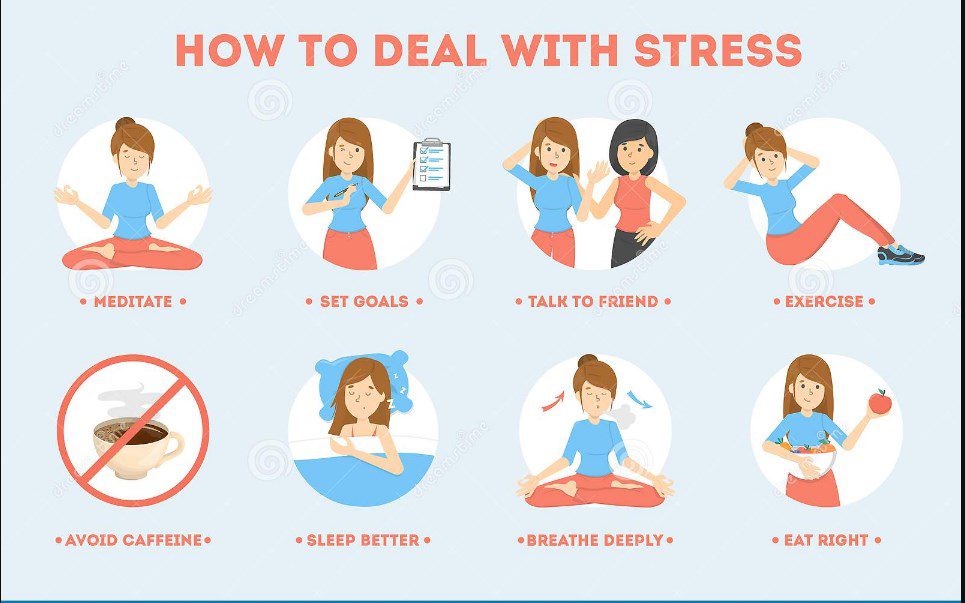
- Eat and drink to optimize your health. Some people try to reduce stress by drinking alcohol or eating too much. These actions may seem to help in the moment. But actually may add to stress in the long run. how to mange stress Caffeine also can compound the effects of stress. Consuming a healthy, balanced diet can help to combat stress.
-
Exercise regularly. In addition to having physical health benefits, exercise has been shown to be a powerful stress reliever. Consider non-competitive aerobic exercise. Strengthening with weights, or movement activities like yoga or Tai Chi, and set reasonable goals for yourself. Aerobic exercise has been shown to release endorphins. How to mange stress natural substances that help you feel better and maintain a positive attitude.
- Stop using tobacco and nicotine products. People who use nicotine often refer to it as a stress reliever. However, nicotine actually places more stress on the body by increasing physical arousal and reducing blood flow and breathing.
- Study and practice relaxation techniques. Taking the time to relax every day helps. To manage stress and to protect the body from the effects of stress. You can choose from a variety of techniques, such as deep breathing, imagery, progressive muscle relaxation, and mindfulness meditation. There are many online and smart phone apps that provide guidance on these techniques; although some entail purchase costs, many are available free of charge.
- Reduce triggers of stress. If you are like most people, your life may be filled with too many demands and too little time. For the most part, these demands are ones we have chosen. You can free up time by practicing time-management skills like asking for help. When it’s appropriate, setting priorities, pacing yourself, and reserving time to take care of yourself.
How to Relief from Stress
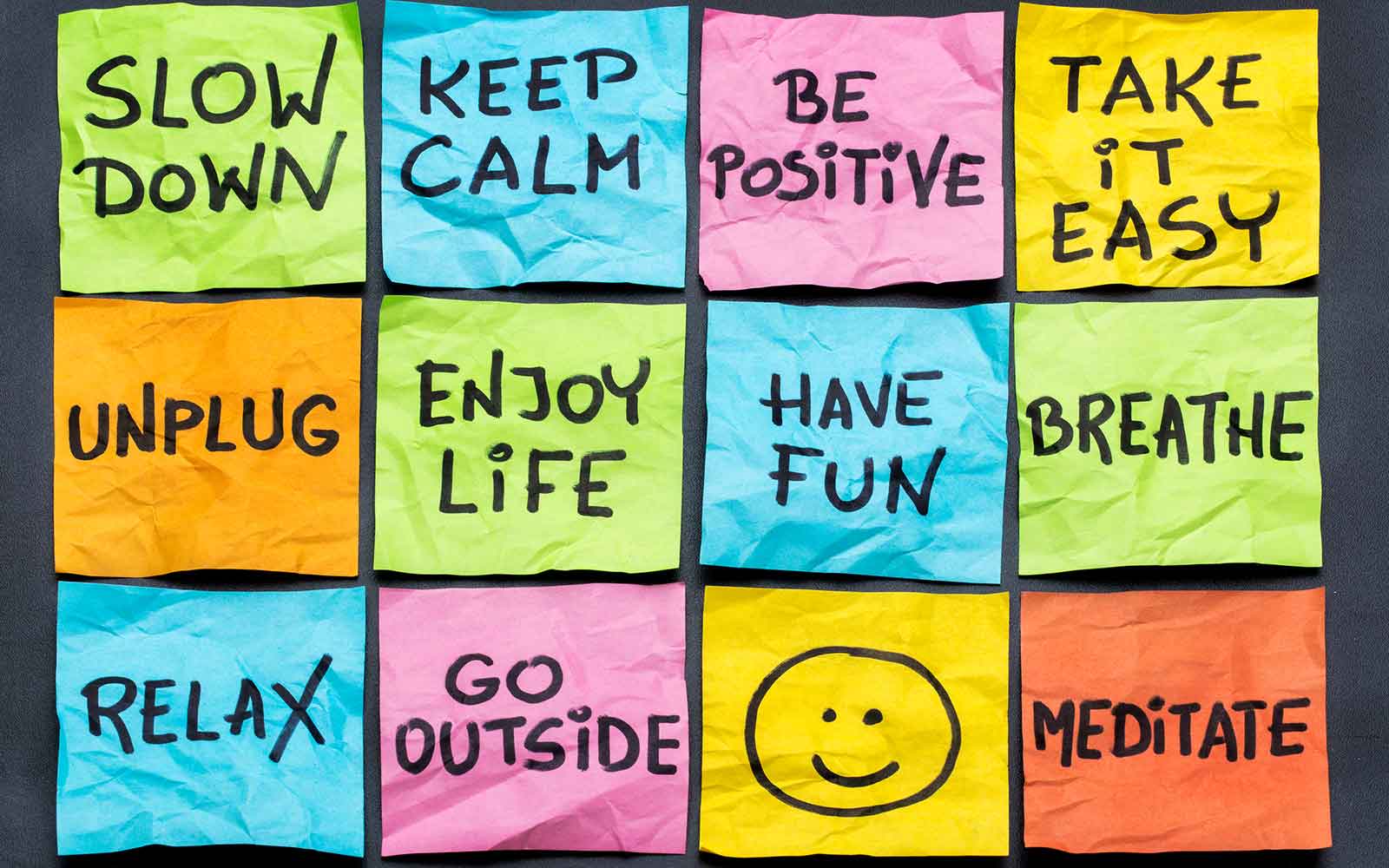
-
Examine your values and live by them. The more your actions reflect your beliefs. The better you will feel, how to mange stress no matter how busy your life is. Use your values when choosing your activities.
- Assert yourself. It’s okay to say “No” to demands on your time and energy that will place too much stress on you. You don’t have always have to meet the expectations of others.
- Set realistic goals and expectations. It’s okay—and healthy—to realize you cannot be 100% successful at everything all at once. Be mindful of the things you can control and work on accepting the things that you can’t control.
- Sell yourself to yourself. When you’re feeling overwhelmed, remind yourself of what you do well. Have a healthy sense of self-esteem.
What to do if you have trouble sleeping
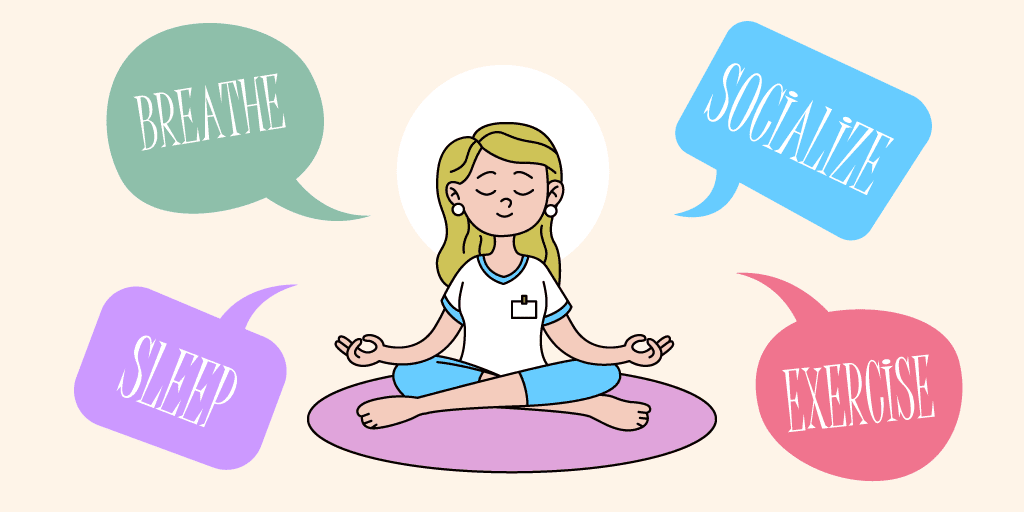
You may experience insomnia (an inability to sleep) because of discomfort. Stress from personal concerns, or side effects from your medications. If you cannot sleep, try these tips:
- Establish a regular sleep schedule – go to bed and get up at the same time every day.
- Make sure your bed and surroundings are comfortable. Arrange the pillows so you can maintain a comfortable position.
- Keep your bedroom dark and quiet.
- Use your bedroom for sleeping only. Don’t work or watch TV in your bedroom.
- Avoid napping too much during the day. How to mange stress At the same time, remember to balance activity with periods of rest.
- If you feel nervous or anxious, talk to your spouse, partner, or a trusted friend. Get your troubles off your mind.
- Listen to relaxing music.
- Do not rely on sleeping pills. They can be harmful when taken with other medications. Use them only if recommended for a brief period by your healthcare provider if other non-medication methods don’t work.
- Take diuretics, or “water pills,” earlier if possible. So you don’t have to get up in the middle of the night to use the bathroom.
- If you can’t sleep, get up and do something relaxing until you feel tired. Don’t stay in bed worrying about when you’re going to fall asleep.
- Avoid caffeine.
- Maintain a regular exercise routine, but don’t exercise within two to three hours before the time you go to bed.
Also Read :Golden Temple Sri Harmandir Sahib, Amritsar, India
Foods That Help Ease Anxiety
Anxiety is one of the most prevalent mental health conditions. How to mange stress affecting approximately 7.6 percent of the global population.
It’s an umbrella term used to describe various disorders
— such as generalized anxiety disorder, social anxiety, and phobias
— and is generally characterized by constant feelings of tension, worry, and nervousness that can interfere with daily life.
In many cases, medication is often required as a main course of treatment. Though, there are several strategies you can also use to help reduce anxiety symptoms, from exercising to breathing techniques.
Additionally, there are some foods you can eat. How to mange stress That may help support brain function and lower the severity of your symptoms. Mostly due to their brain-boosting properties.
Here are 6 science-backed foods and beverages that may provide anxiety relief.
1. Salmon
Salmon may be beneficial for reducing anxiety.
It contains nutrients that promote brain health. Including vitamin D and the omega-3 fatty acids eicosapentaenoic acid (EPA) and docosahexaenoic acid
These nutrients may help regulate the neurotransmitters dopamine and serotonin, which can have calming and relaxing properties.
For the most benefit, try adding salmon to your diet 2–3 times per week.
2. Chamomile
Chamomile is an herb that may help reduce anxiety.
It contains both antioxidant and anti-inflammatory properties, how reduce stress which may help lower inflammation associated with anxiety
Though the mechanisms aren’t clear. Chamomile is believed to help regulate neurotransmitters related to mood such as serotonin. How to relief from stress dopamine, and gamma-amino butyric acid.
Further, it may help regulate the hypothalamic-pituitary-adrenocortical (HPA) axis, a central part of the body’s stress response
Also read :101+ motivation Quotes in Hindi Motivate You
Some studies have examined the association between chamomile extract and anxiety relief.
One 38-week randomized study in 179 people with generalized anxiety disorder. Experienced a significantly greater reduction in symptoms after consuming chamomile extract compared to those who did not
While these results are promising, most studies have been conducted on chamomile extract. More research is necessary to evaluate the anti-anxiety effects of chamomile tea, which is most commonly consumed.
3. Turmeric
Turmeric is a spice that contains cur cumin. A compound studied for its role in promoting brain health and preventing anxiety disorder.
Known for its high antioxidant and anti-inflammatory properties. How to relief from stress Cur cumin may help to prevent damage. To brain cells related to chronic inflammation and oxidative stress.
Though promising, most studies observed the effects of curcumin supplementation rather than obtaining curcumin from turmeric. Therefore, how reduce stress more research in this area is needed.
4. Dark chocolate
Incorporating some dark chocolate into your diet may also be helpful for easing anxiety.
Dark chocolate contains flavonols, such as epicatechin and catechin, which are plant compounds that act as antioxidants.
Some research suggests that the flavonols found in dark chocolate may benefit brain function and have neuroprotective effects. In particular, how to mange stress 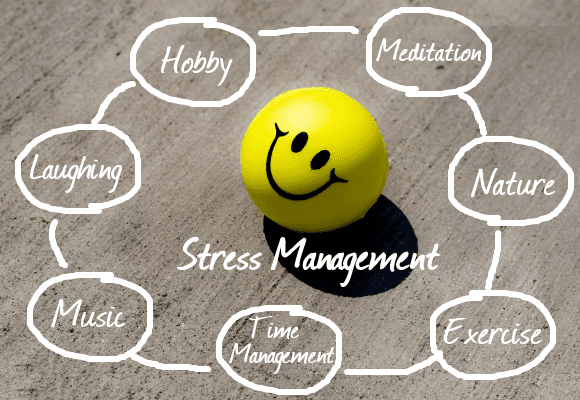
flavonols how reduce stress may increase blood flow to the brain and enhance cell-signaling pathways how to relief from stress
5 ways to reduce stress right now
Organise
Stress can start when you are overwhelmed with tasks or appointments. Creating a to-do list or time plan allows you to focus on each task until you’re done.
Sit down and write down everything you need to accomplish and every step you take to accomplish each task. Before, you must first do and identify the tasks that can be dropped or can be assigned to others. Be realistic about how long it will take you to complete each task and set aside your time to reward yourself for completing the task.
Get active
Virtually any form of physical activity can act as a stress reliever. Even if you’re not an athlete or you’re out of shape, exercise can still be a good stress reliever.
Physical activity can pump up your feel-good endorphins and other natural neural chemicals that enhance your sense of well-being. Exercise can also refocus your mind on your body’s movements, which can improve your mood and help the day’s irritations fade away. Consider walking, jogging, gardening, housecleaning, biking, swimming, weightlifting or anything else that gets you active.
Take a time out
You’re not a toddler, but that doesn’t mean a time out doesn’t apply when you’re stressed.
Just like in children, stress can affect our emotions and how we behave, as well as our physical and mental health. Stress might make you become irritable or short tempered, easily upset or agitated.
When you start noticing that stress is affecting how you feel or behave, it might be time to step away and spend a few minutes just focusing on yourself. Do something you enjoy like reading a book or listening to music, how to mange stress or find a trusted friend or colleague that you can talk to about how you’re feeling.
Time outs don’t have to just be reactive: proactively build some ‘you time’ into your schedule each week, allowing yourself to do something enjoyable whilst looking after your health.
Meditate
If you haven’t tried mindfulness, meditation or relaxation exercises yet, there’s no better time to start. Scientifically proven to help decrease and manage stress, and promote mental wellbeing, how to relief from stress these tools are useful for when you’re experiencing stress and as prevention tools in times when you’re feeling well.
Laugh more
A good sense of humor can’t cure all ailments, but it can help you feel better, even if you have to force a fake laugh through your grumpiness. When you laugh, it not only lightens your mental load but also causes positive physical changes in your body. Laughter fires up and then cools down your stress response. So read some jokes, tell some jokes, watch a comedy or hang out with your funny friends. Or give laughter yoga a try.






